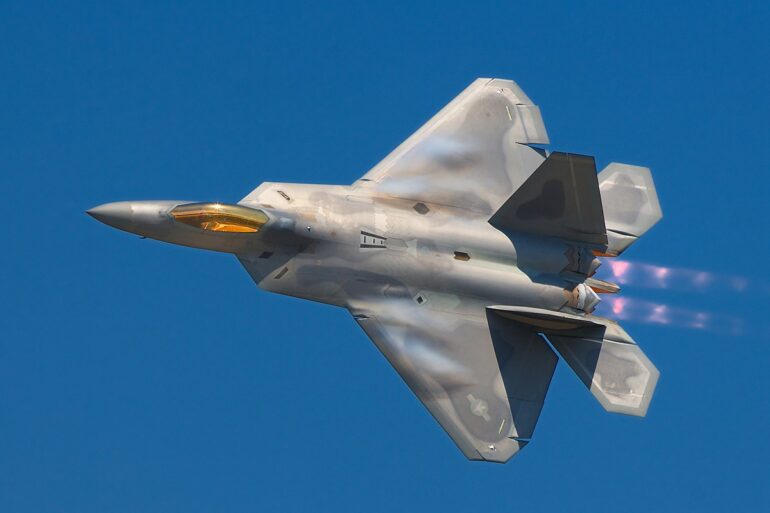United States President Donald Trump has reportedly approved the sale of Lockheed Martin’s advanced F-22 Raptor fighter jets to the State of Israel.
According to a Friday report in a Saudi-owned Asharq al-Awsat newspaper, the announcement was made by US Secretary of Defense Mark Esper during recent talks with an Israeli delegation led by Defense Minister Benny Gantz (Blue & White).
Esper told Israeli officials during a visit to Israel that Trump has approved selling both the F-22 stealth fighters and precision-guided munitions to Israel.
Washington had reportedly rejected Israel’s previous attempts to acquire the Raptors, which made their first combat sorties in 2014 as part of Washington’s campaign against ISIS in Syria.
Permitting Israel to purchase Lockheed Martin’s F-22s would first require the US House of Representatives to overturn a law barring Washington from exporting the advanced aircraft. Congress passed the law in 1998 over fears that the F-22’s near-unparalleled stealth technology could fall into Russian or Chinese hands if the fighter jet were sold abroad.
The report came as Trump appears ready to sell the F-35 stealth fighter jets to the United Arab Emirates after it normalized ties with Jerusalem in September.
Green lighting the sale of F-35s to the UAE provided a convenient pretense for Trump to overturn the congressional ban on selling F-22s abroad, using the fear of appearing unsympathetic to Israel’s need to maintain a Qualitative Military Edge (QME) in the Semitic Region as a means of silencing opponents of the sale.
The sale of both F-35s to the UAE and F-22s to Israel further demonstrate the extent to which Trump’s “Abraham Accords” – like all US-brokered “peace” agreements in the region – primarily serve to increase US hegemony and arms sales in the Middle East.
A senior Bahraini official, meanwhile, told Yisrael HaYom on Saturday night that US-allied Arab states are concerned that Trump will be defeated and that Democratic candidate Joe Biden might implement major policy changes in the Semitic region.
“There are preparations in case the administration changes and the administration’s policy in the Middle East changes from end to end. However, in both scenarios there is no concern about the agreements signed so far with Israel,” the Bahraini official said.
“In fact, Biden’s victory may pave the way for a stronger alliance with Israel, with the understanding that we are interdependent and do not need constant backing from the Americans.”
Bahrian’s wisdom should also extend to a scenario in which Trump wins this week’s election and remains in office, as our actual shared interests dictate a united anti-imperialist front to keep the entire Semitic region free from US involvement.





